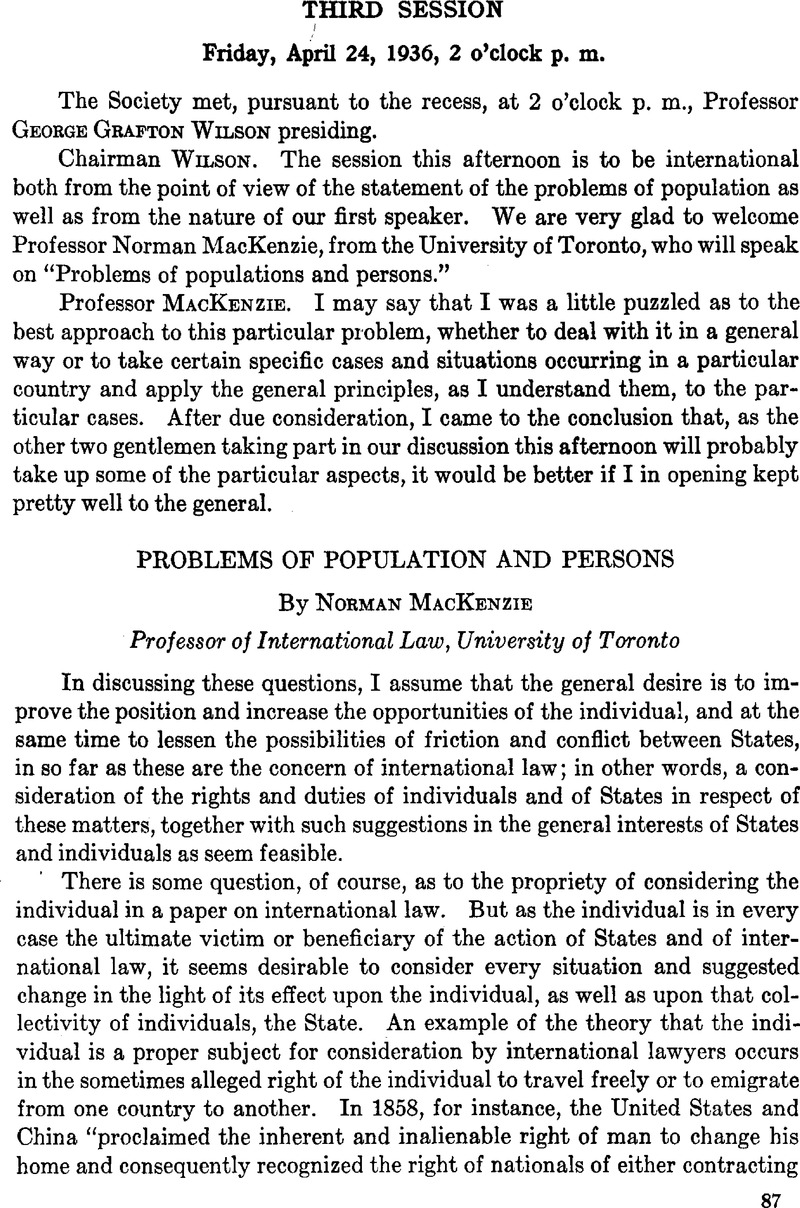No CrossRef data available.
Published online by Cambridge University Press: 27 February 2017

1 One peculiarity of the Canadian law is perhaps worth mentioning. It arises out of the existence of three different and in some respects conflicting statements on somewhat the same subject. The first is the Immigration Act, which defines Canadian citizen, Canadian domicil, and authorizes the immigration authorities to exclude or deport certain classes of individuals. The second is the Naturalization and Status of Aliens Act, which defines British subject and provides for the naturalization of aliens. The third is the Canadian Nationals Act which defines Canadian nationality. The conflict is due to the fact that (a) while all Canadian nationals are British subjects, all British subjects are not Canadian nationals, (b) while all Canadian citizens are British subjects, neither British subjects nor yet Canadian nationals are necessarily Canadian citizens, and both, under the terms of the Immigration Act, may be kept out of Canada. One rather unusual result is that a Canadian citizen, either British born (outside of Canadian territory) or a citizen by naturalization, who leaves Canada and resides for a period of twelve months or longer in a foreign country—usually the United States—and who falls foul of the authorities there who proceed to deport him, may be refused admission to Canada because he has lost his Canadian domicil. However, as he retains his status as a British subject, he cannot in the case of naturalized citizens be sent back to his country of origin. The result is that Great Britain may find him landed on her shores, although he had never spent a day in that country in his life. This is, of course, absurd, and should be speedily rectified by the amendment of the Canadian legislation in question.